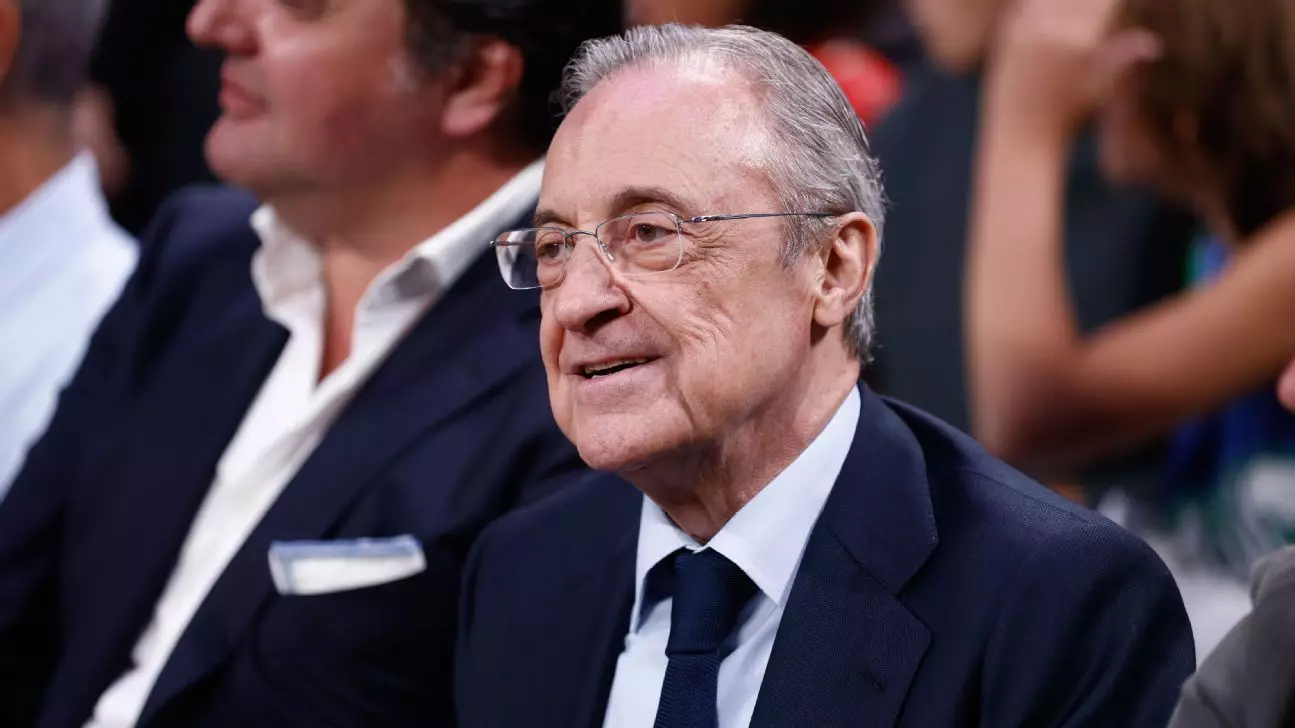The award season in football often brings forth a whirlwind of emotions and controversies. This year’s Ballon d’Or ceremony presented a fascinating case study of the intersection between football politics and international voting dynamics. When the prestigious award was granted to Rodri of Manchester City, it ignited a backlash from Real Madrid, particularly directed at the voting process and specific journalists. This discussion not only highlights the biases inherent in voting but also raises questions about the representation of smaller footballing nations.
Florentino Pérez, the president of Real Madrid, voiced his disappointment during a recent AGM, promptly targeting votes from journalists hailing from nations like Namibia, Uganda, Albania, and Finland. Pérez’s assertion was that these journalists, unknown on the global football stage, had an outsized influence on a critical award decision. He argued that the Ballon d’Or should be decided by “well-known” figures in football media—essentially, those who possess an understanding of the sport at its highest levels. This opinion reflects a common sentiment in football circles that often prioritize the perspectives from traditional footballing powerhouses over votes from less prominent nations.
While there is merit to ensuring that those voting are knowledgeable about the players and the game, Pérez’s comments can also be seen as elitist. They risk diminishing the voices of journalists from smaller countries, reducing their opinions to mere footnotes in the grand narrative of football. After all, every vote matters in a collective acknowledgment of talent, regardless of the voter’s national origin. It is crucial to recognize that football continues to grow globally, expanding into regions where the sport enjoys less historical prominence.
In response to Pérez’s criticisms, Namibian journalist Sheefeni Nikodemus countered on the Spanish radio show Cadena SER, asserting that these remarks stem from frustration rather than an objective evaluation of the situation. Nikodemus highlighted a significant point: the talent and insights of journalists from diverse backgrounds deserve acknowledgment, regardless of their country’s footballing history. If the quality of opinions were to be judged purely on national prowess in football, it undermines the spirit of how the sport is perceived worldwide.
Nikodemus’s rebuttal underscores a growing trend of questioning entrenched biases within football. He provocatively invited Pérez to consider the perspective of an esteemed journalist from a football powerhouse who might disagree with him. Could it be that the foundational principles of fair representation in voting are compromised due to an elitist attitude towards the voting body?
The process behind the Ballon d’Or is designed for democratic participation among journalists, with each voting member ranking their top ten players to produce a cumulative score. However, amidst the various performances of the season, some prominent names like Vinícius Júnior found themselves outside the top selections from certain voters. Despite a commendable year that witnessed Real Madrid clinching both La Liga and the Champions League, discrepancies arose during the voting stage, leading to discussions on accountability and the rationale behind selection criteria.
Pérez’s assertion that the Ballon d’Or should have gone to Vinícius, or at the very least to a player representing Real Madrid, further intensifies the narrative. Yet it raises an essential question: do sports awards reflect only individual seasons, or do they embody systemic recognition of the player’s contribution over time? After all, Rodri’s crucial role in Spain’s Euro 2024 victory highlights how international tournaments can sway opinions and voting outcomes.
The Ballon d’Or discussion reveals more than just a response to a single award—it reflects underlying tensions about global representation in football. Beyond the turbulent emotions surrounding awards, it is vital to cultivate a spirit of inclusivity that values perspectives from all corners of the globe. As football continues to evolve, so too must the practices surrounding its awards, ensuring that they reflect the diverse tapestry of the sport.
Ultimately, as the beautiful game progresses, the Ballon d’Or and similar accolades will undoubtedly face scrutiny. The importance of a fair and transparent voting process should prevail, fostering a culture where players of all backgrounds can garner the recognition they deserve.
